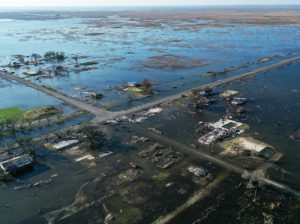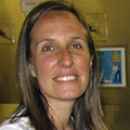Developing a Profile-based Website for Disaster Communities
This study will build capacity in the delivery of information about oil spills, tailored to the needs of disaster communities in the Gulf region.
Background

Photo by devrim_pinar/Fotolia
The Risk Communications subteam is building a website that will organize and explain information in a manner tailored to the needs of specific users. It will automate personalized content and formats according to users’ priorities and preferences.
The team developed priorities and preferences of different types of users by conducting in-person interviews with a range of potential users, such as people working in government and non-government organizations responsible for risk management, elected officials and their staff, business leaders, faith-based organizations, and other community leaders. The interviews explored who the key decisionmakers are, what their decision problems are, and what decision information they need and use.
Creating a State-of-the-Art Website that Feels Personal
Thousands of people visit websites like Amazon.com each day, and each is welcomed into the site by a uniquely customized homepage. Why? The content is personalized so that visitors feel like the page is speaking directly to them. The Consortium for Resilient Gulf Communities (CRGC) is using state-of-the-art techniques to design a website that is personalized for people interested in learning more about how to build community resilience in the face of a major oil spill. The result should be a website that is more relevant, more engaging, and ultimately more useful for diverse end users.
What is web content personalization?
Instead of trying to appeal to a wide range of visitors with one generic home page, we can target different content to different types or groups of visitors. One visitor may be a community health professional who wants to learn more about health impacts of oil spills; they might be most interested in the findings of recent studies on depression or stress. A business owner, on the other hand, may be more concerned about government support during a disaster. A government employee responsible for hazard management planning might want to review community action plans from similar areas. Rather than requiring each visitor to take multiple steps to find the information they want, we can tailor information to meet their needs. Importantly, the tailoring can be done without fundamentally limiting the information that any user has access to.
How does content personalization work?
We can map website content to individual visitors using data available to us about the visitor in two steps:
Step One: Characterizing
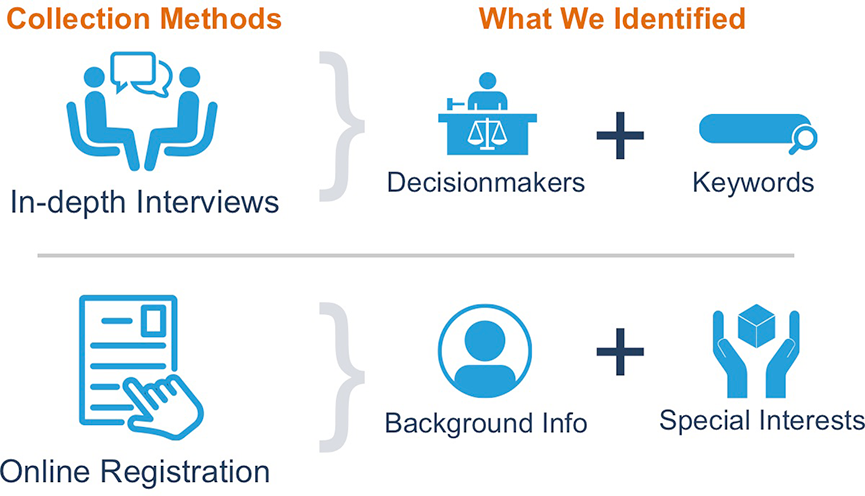
We will use information we have already gathered from in-depth interviews with a range of potential users from the Gulf region. These are people from a range of backgrounds involved in making decisions related to building community resilience before and after an oil spill. From the interviews we have identified types of decision makers (e.g., government workers, business owners, leaders from community-based organizations) interested in different human dimensions of oil spills (e.g., health, economic, social impacts). We have also identified keywords that capture the topics of interest to decision makers (e.g., community development plan, environmental jobs, emergency fund, community events). We can combine this knowledge from the interviews with more specific information provided by each visitor to our website via an online registration form that requests basic personal information about their background (e.g., seafood industry worker) and special interests (e.g., health impacts on workers exposed to oil).
Step Two: Recommending

At this stage, we assign weights to a set of keywords, based on users’ interests, to create user profiles. Then we use a recommender system to match user profiles with items to be recommended. The system relies on rules that affect the content presented to users when their profile satisfies the rule’s conditions.
What are the benefits of content personalization?
- Fast response: Visitors can find the information and tools they need quickly.
- Uniquely informative: Visitors will be more highly engaged and more likely to come back to the website and recommend it to others.
- Less distraction: Visitors won’t be frustrated with content that seems to have nothing to do with their interests.
Learn more
Web Content Personalization: A State-of-the-Art Review (See Full Report)
Related News
How Can Federal Agencies Advance Racial Equity?
The Texas Power Grid Failure Is a Climate Change Cautionary Tale
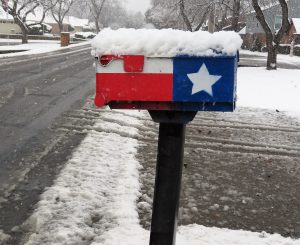 The winter storm that ravaged Texas this month did not come as a surprise to scientists. “The future is not going to be like the past,” CRGC director Melissa Finucane, who also serves as a co-director of the RAND Climate Resilience Center, told TIME Magazine. “If we could just plan a little better, we could anticipate some of these problems.”
The winter storm that ravaged Texas this month did not come as a surprise to scientists. “The future is not going to be like the past,” CRGC director Melissa Finucane, who also serves as a co-director of the RAND Climate Resilience Center, told TIME Magazine. “If we could just plan a little better, we could anticipate some of these problems.”
Building Community Resilience to Large Oil Spills
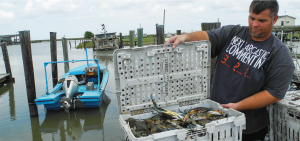 What could communities, government officials, nongovernment organizations, businesses, and scientists do to build community resilience to large oil spills? Answering that question was the goal of CRGC researchers as they researched and wrote their final report, Building Community Resilience to Large Oil Spills: Findings and Recommendations from a Synthesis of Research on the Mental Health, Economic, and Community Distress Associated with the Deepwater Horizon Oil Spill.
What could communities, government officials, nongovernment organizations, businesses, and scientists do to build community resilience to large oil spills? Answering that question was the goal of CRGC researchers as they researched and wrote their final report, Building Community Resilience to Large Oil Spills: Findings and Recommendations from a Synthesis of Research on the Mental Health, Economic, and Community Distress Associated with the Deepwater Horizon Oil Spill.
Blue Crabs, Survey Panels, and More
 CRGC researchers have been busy publishing new research. Two of note: Jacqueline Fiore, Craig Bond, and Shanthi Nataraj released a working paper on “The Impact of the Deepwater Horizon Spill on Commercial Blue Crab Landings”; and Andrew Parker, Amanda Edelman, Katherine Carman, and Melissa Finucane have a journal article “On the Need for Prospective Disaster Survey Panels.” Many more papers are available, linked from our website. View all research results »
CRGC researchers have been busy publishing new research. Two of note: Jacqueline Fiore, Craig Bond, and Shanthi Nataraj released a working paper on “The Impact of the Deepwater Horizon Spill on Commercial Blue Crab Landings”; and Andrew Parker, Amanda Edelman, Katherine Carman, and Melissa Finucane have a journal article “On the Need for Prospective Disaster Survey Panels.” Many more papers are available, linked from our website. View all research results »
Hurricane Recovery in the Bahamas: Turning Good Intentions into Good Decisions
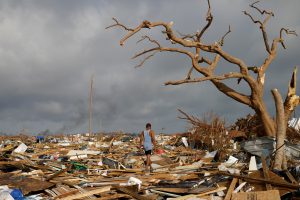 Recovery in the Bahamas will have to be a balancing act. Plans will need to allow for transition toward long-term strategic goals for the nation, but also be mindful of not perpetuating inequities, write CRGC director Melissa Finucane and RAND colleague Joie Acosta. Read more »
Recovery in the Bahamas will have to be a balancing act. Plans will need to allow for transition toward long-term strategic goals for the nation, but also be mindful of not perpetuating inequities, write CRGC director Melissa Finucane and RAND colleague Joie Acosta. Read more »
Paper Explores Challenges Reaching Vulnerable Populations in Gulf Coast
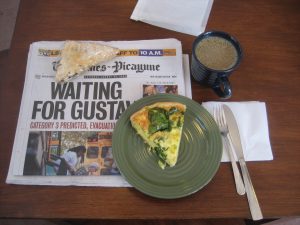 Delivering risk and crisis communication to U.S. Gulf Coast residents poses a unique challenge to individual and organizational responders, according to a new paper by Elizabeth Petrun Sayers and several CRGC coauthors. Their findings highlight significant differences in preferred communication channels and levels of trust in information sources. Read more »
Delivering risk and crisis communication to U.S. Gulf Coast residents poses a unique challenge to individual and organizational responders, according to a new paper by Elizabeth Petrun Sayers and several CRGC coauthors. Their findings highlight significant differences in preferred communication channels and levels of trust in information sources. Read more »
CRGC Researchers Present at the 2018 Society for Risk Analysis
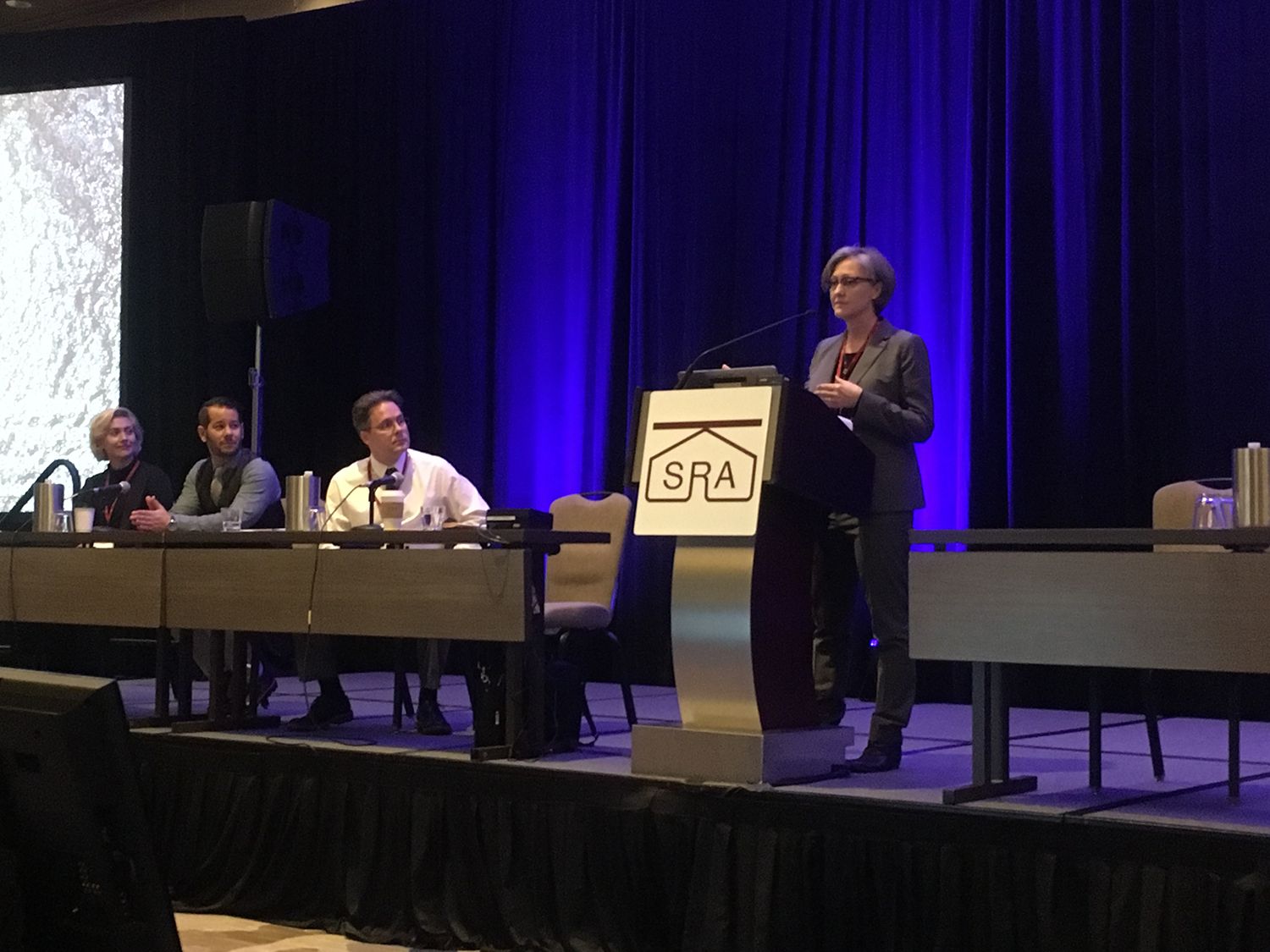 Melissa Finucane, Andrew Parker, Vanessa Parks, and Rajeev Ramchand presented an overview of the Consortium for Resilient Gulf Communities (CRGC) at the annual meeting of the Society for Risk Analysis in New Orleans last month. Read more »
Melissa Finucane, Andrew Parker, Vanessa Parks, and Rajeev Ramchand presented an overview of the Consortium for Resilient Gulf Communities (CRGC) at the annual meeting of the Society for Risk Analysis in New Orleans last month. Read more »
Workshop Explores Regional Priority Setting for Health, Social, and Economic Disruption from Spills
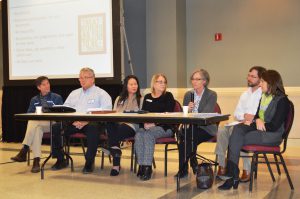 CRGC director Melissa Finucane participated in the kick-off of a collaborative workshop series, “Regional priority setting for health, social, and economic disruption from spills.” The two-day event took place December 4-5 in Houma, Louisiana. Read more »
CRGC director Melissa Finucane participated in the kick-off of a collaborative workshop series, “Regional priority setting for health, social, and economic disruption from spills.” The two-day event took place December 4-5 in Houma, Louisiana. Read more »
Overlapping Environmental Disasters Put a Strain on Gulf Communities
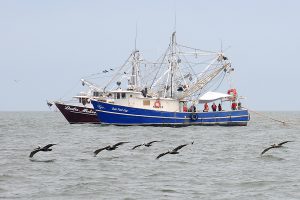 Recent news suggests that the Deepwater Horizon oil spill will soon be eclipsed by the millions of barrels of oil leaking from the Taylor Energy platform since 2004. The Coast Guard this week ordered Taylor to contain the mess, or face massive fines. But cleanup alone may not fully mitigate the damage and effects may linger, as they did after the Deepwater Horizon spill, writes CRGC director Melissa Finucane. Read more »
Recent news suggests that the Deepwater Horizon oil spill will soon be eclipsed by the millions of barrels of oil leaking from the Taylor Energy platform since 2004. The Coast Guard this week ordered Taylor to contain the mess, or face massive fines. But cleanup alone may not fully mitigate the damage and effects may linger, as they did after the Deepwater Horizon spill, writes CRGC director Melissa Finucane. Read more »CRGC Researchers Present Findings on Exposure to Disasters in the Gulf States and Long-Term Mental and Behavioral Health Outcomes
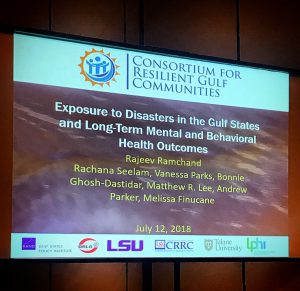 The Natural Hazards Center, in partnership with the International Research Committee on Disasters (IRCD), and with funding from the National Science Foundation, convened its 2018 Researchers Meeting in Broomfield, Colorado on July 11 and July 12, 2018, which focused on improving rapid reconnaissance research and featured sessions designed to identify pressing research needs, better coordinate researchers and research teams, and improve data collection, sharing, and archiving. This year’s meeting, designed to convene researchers across disciplines, who recently received National Science Foundation RAPID grants, as well as those who have ongoing hazards and disaster related research projects, featured the Consortium for Resilient Gulf Communities’ (CRGC) recent findings related to exposure to disasters in the Gulf States and long-term mental and behavioral health outcomes. Read more »
The Natural Hazards Center, in partnership with the International Research Committee on Disasters (IRCD), and with funding from the National Science Foundation, convened its 2018 Researchers Meeting in Broomfield, Colorado on July 11 and July 12, 2018, which focused on improving rapid reconnaissance research and featured sessions designed to identify pressing research needs, better coordinate researchers and research teams, and improve data collection, sharing, and archiving. This year’s meeting, designed to convene researchers across disciplines, who recently received National Science Foundation RAPID grants, as well as those who have ongoing hazards and disaster related research projects, featured the Consortium for Resilient Gulf Communities’ (CRGC) recent findings related to exposure to disasters in the Gulf States and long-term mental and behavioral health outcomes. Read more »

